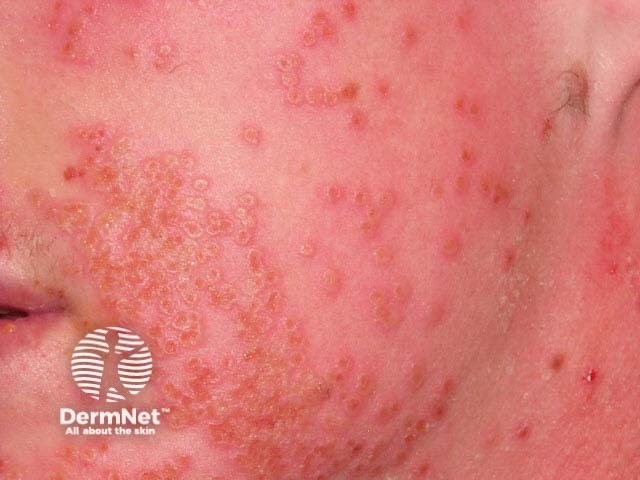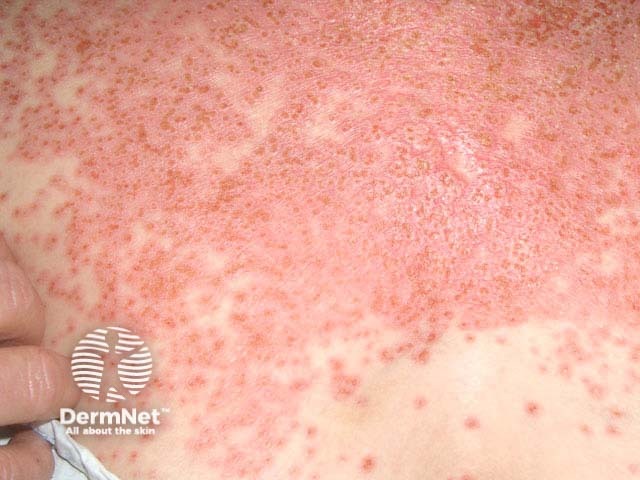Main menu
Common skin conditions

NEWS
Join DermNet PRO
Read more
Quick links
This quiz will test how good you are at diagnosing skin conditions due to fungi, bacteria and viruses.
For each of the ten cases, study the image(s) and then answer the questions. You can click on the image to view a larger version if required.
Each case should take approximately 2 minutes to complete. There is a list of suggested further reading material at the end of the quiz.
When you finish the quiz, you can download a certificate.


What is the diagnosis?
Eczema herpeticum.
What is the cause of this condition?
Eczema herpeticum is the name given to a distinctive eruption caused by herpes simplex virus (HSV) type 1 or type 2, or rarely by Coxsackievirus A16 or vaccinia It may be due to primary infection or disseminated recurrent infection. It is also known as Kaposi's varicelliform eruption. It arises most often in patients with atopic dermatitis, and various HSV-specific and non-specific immune defects have been proposed to account for the severe infection in these individuals. It does not appear to relate to the use of topical or systemic steroids, and the role of topical calcineurin inhibitors (e.g. pimecrolimus cream) is unknown.
What are the clinical features?
Eczema herpeticum presents as clusters of monomorphic umbilicated vesicles associated with fever, malaise and lymphadenopathy. These are most frequently seen on the face but may be localised elsewhere or spread widely. The vesicles often appear most numerous on areas predisposed to eczema, with which it is therefore often confused. They progress to punched-out, crusted or haemorrhagic erosions, which persist for 10 days to 3 weeks and may leave scars. The herpetic infection may be complicated by secondary local and systemic staphylococcal or streptococcal infection. It may also progress to systemic viraemia with multiple organ involvement, which has a significant mortality.
How is the diagnosis confirmed?
If required, the diagnosis may be confirmed by isolation of HSV by culture, direct immunofluorescence or increasingly, by polymerase chain reaction techniques.
What is the treatment?
As soon as eczema herpeticum is suspected, commence treatment with oral aciclovir 400mg five times daily for 7 days or so. Severe eczema herpeticum should be treated with intravenous aciclovir 15mg/kg/day (up to 500mg 8-hourly) and oral antibiotics (e.g. flucloxacillin). An ophthalmologist should see the patient if eye infection is suspected as herpetic keratitis can lead to scarring.